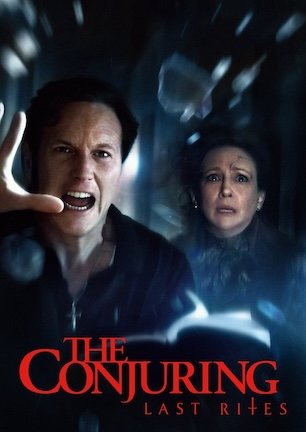Studio: Lionsgate
Director: Lorcan Finnegan
Writer: Garret Shanley, Lorcan Finnegan
Producer: John McDonnell, Brendan McCarthy
Stars: Imogen Poots, Jesse Eisenberg, Jonathan Aris, Senan Jennings, Eanna Hardwicke
Review Score:
Summary:
A young couple must raise a mysterious child after becoming inexplicably trapped in a suburban housing development of identical homes.
Review:
I haven’t made up my mind whether “Vivarium” is a timely “Twilight Zone” tale for a post-coronavirus climate or if it’s insultingly tone deaf given the state of the world. It might be up to each individual viewer to decide how well the bleak humor and slow-moving suspense work in what amounts to a dramatized interpretation of Dave Matthews Band’s “Ants Marching” with a twist of charred horror.
Gemma and her boyfriend Tom already have a seemingly average existence. She’s a schoolteacher. He’s a landscaper. A common, working class couple like them needs a standard, suburban home to settle into. That’s where Yonder comes in.
Yonder is a sprawling development of identical homes with manicured lawns beneath a blue sky dotted by cottony clouds. Some corporation evidently pictured a plain ‘American Dream,’ then put it in a copy machine that never turned off.
Abandoned there while on a property tour with a weird real estate agent, Gemma and Tom discover no matter where they turn to leave the empty community, all roads lead back to unit #9. Once they run out of gas, Gemma and Tom decide they might as well spend the night. Before you know it, they’ve made a tolerable life for themselves. Days turn into weeks as they eat prepackaged meals dropped on their doorstep. Tom even takes up a daily chore of digging a deeper and deeper hole. (Subtlety never deigns to be a strong suit for the movie’s metaphors.)
Then one day, the cardboard box that normally contains food brings a baby instead. “Raise the child and be released,” says the label. It only takes three months for the baby to become a boy who oddly mimics “mom and dad’s” speech in a bizarre voice. With the unwanted population increased by one, Gemma and Tom’s increasingly inescapable nightmare becomes even more unbearable as they both struggle not to lose their minds or identities in the mundane madness.
On the one hand, “Vivarium” can seem like an apt parallel for all of us who relate to the stir-crazy cabin fever of self-isolation. With the entire planet battling COVID-19 through social distancing as I write this (April 2020), roommates and families forced to indefinitely huddle in the same residence now know new levels of annoyance and anxiety. “Vivarium” emulates the obnoxious frustration of being trapped, first figuratively but then literally, in a homemade prison with people exhausting every last nerve. It’s a quirky movie about aimless existence, resenting complacency, and unconsciously playing ‘House’ according to pre-scripted notions of how everyone else behaves. Those themes are arguably more relatable in these uncertain times than perhaps they ever were previously.
On the other hand, current conditions can make “Vivarium’s” specifics appear almost insensitively trite. It’s not like the movie knew what was coming of course. Seeing the not-at-all-concealed commentary thudding on concrete has as much to do with my mindset as it does with the film’s particular perspective.
During the previous week, I watched “The Platform” (review here) on Netflix. It’s possible I enjoyed that movie even more because of current circumstances. Its allegorical story of a government institution where cellmates survive by ignoring the needs of anyone beneath them hits home with hard horror that frighteningly feels more predictive than speculative. The film’s dissected exploration of class system segregation smartly criticizes capitalism in the guise of a killer sci-fi story that’s meaningful as well as entertaining.
Meanwhile, “Vivarium’s” message of, “isn’t a life of Amazon deliveries and cookie-cutter homes in safe suburbia just the pits?” comes across as poorly tuned whining as opposed to urgent social commentary. At a time when people are losing jobs, waiting in long lines to shop at grocery stores with empty shelves, and desperately worrying about their financial futures, eating vacuum-sealed food, having no responsibilities, and getting lost in a zombified mental state equates Yonder to a comparatively desirable utopia.
The movie’s meaning isn’t hard to follow. Yet the external environment in which it arrives transforms the context into arrogantly shallow complaining. The deliberately droning tone, rooted in drab drama much more than energized action, becomes depressing, but not in the way the filmmakers intended.
Speaking of filmmakers, my bemusement can’t help but note that if you want evidence of how hard it is to put a movie together, look no further than “Vivarium’s” front and end credits. In addition to two producers, four co-producers, 14 executive producers, and two associate producers, identifying the entities that had a hand in making the film would look like this if you strung all 13 production company cards together:
“A Fantastic Films production in co-production with Frakas Productions in co-production with Pingpong Film in association with Lovely Productions in association with Fis Eireann/Screen Ireland in association with XYZ Films in association with Madrona Drive with the support of Eurimages with the support of The Danish Film Institute, The Minor Co-Production Scheme with the support of Copenhagen Film Fund with the participation of Wallimage (Wallonia) with the support of The Tax Shelter of the Belgian Federal Government, Casa Kafka Pictures Movie Tax Shelter empowered by Belfius in co-production with Voo and Be TV.”
There’s no more appropriate score for “Vivarium” than 50/100. Going indecisively down the middle with a “does it really matter?” rating reflects the intentional indistinctness of the setting and disengaged ennui of its atmosphere. “Vivarium’s” drearily dreamlike essay on cyclical redundancy comes from conceptualizing tedium as trauma, which is either an “I’m not alone” comfort for those driven mad by quarantining, or a kick in the teeth to anyone who wishes to return to such relative normalcy. You decide how “Vivarium” melds with your mood.
Review Score: 50






It’s a better idea to lighten up on the outrage and enjoy “Predator: Badlands” for its high value as an action-intensive outer space adventure.